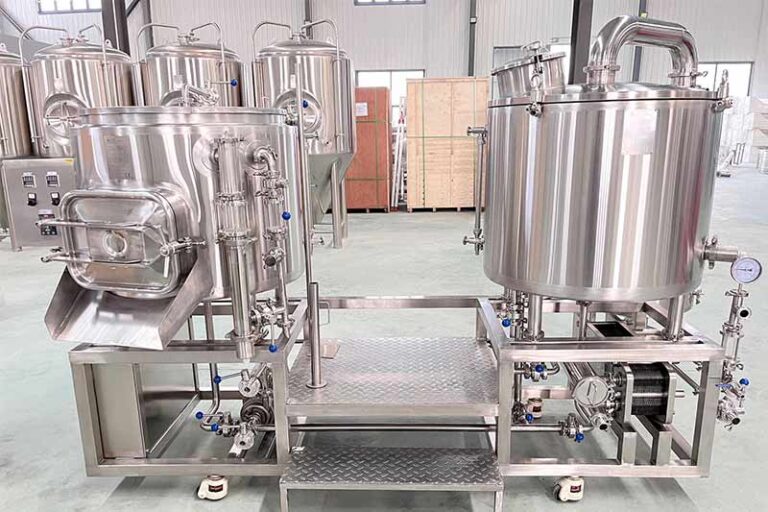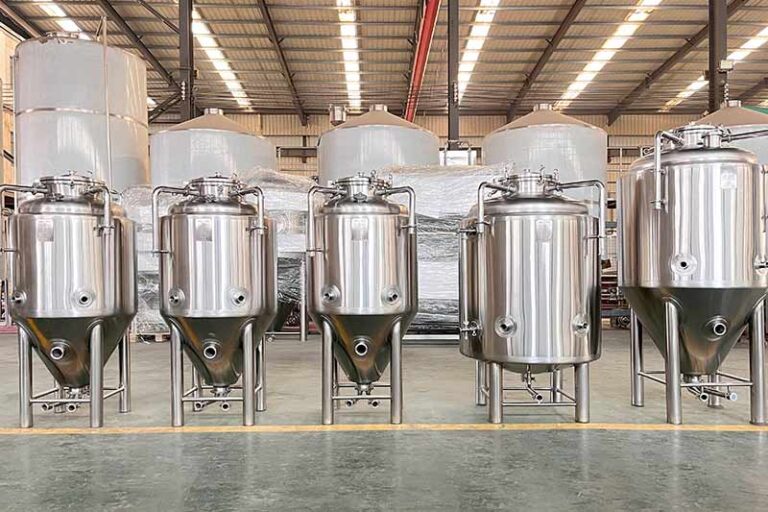Table of Contents

Key Features of Nano Brewery
- Small Batch: nanobreweries focus on producing beer in small batches to experiment with different recipes and styles.
- Artisanal approach: nanobreweries often emphasize a hands-on, artisanal approach to brewing, with the brewer intimately involved in every step.
- Localized and Unique Offerings: Nanobreweries may focus on localized or niche markets, catering to specific communities or creating unique and experimental beers that stand out.
- Limited distribution: Due to their small size, nanobreweries may have limited distribution, selling beer primarily on-site or at local establishments.
- Community engagement: many nanobreweries actively engage with the local community, building a dedicated customer base through events, tastings, and direct sales.
- Flexibility and innovation: nanobreweries are small, flexible, and innovative, encouraging experimentation with different ingredients and brewing techniques.
The brewing process in a nano brewery
- Milling: The first step in the brewing process is milling, which crushes the grain to expose its starch. This can be accomplished using a grain mill, which can be purchased at homebrew beer supply stores. The milled grains are then transferred to a saccharification bucket.
- Brewhouse: In the wort bucket, the milled grains are mixed with hot water to make wort. The wort is then heated to a specific temperature, usually between 148-158°F, to activate the enzyme that converts starch into fermentable sugars. This process takes about an hour and is critical in determining the flavor and alcohol content of the beer.
- Boiling: Once the wort is made, the liquid (called wort) is transferred to the brew pot and boiled for about an hour. During this time, hops are added to the wort to add bitterness, flavor, and aroma to the beer. The longer the hops are boiled, the more bitter the beer will be.
- Fermentation: After the wort is boiled, it is cooled and transferred to the fermenter where the yeast is added. The yeast consumes the sugars in the wort to produce alcohol and carbon dioxide. The fermentation process can take anywhere from a few days to a few weeks, depending on the type of beer being brewed.
Nano Brewing Brewery Equipment Systems
- Mash Bucket: A wort bucket is where milled grains are mixed with hot water to make wort. It is usually a large insulated container with a false bottom for separating the liquid from the grains.
- Brew Pot: The brew pot is where the wort is boiled and hops are added. It is usually a large stainless steel pot with a lid and a faucet for transferring the wort.
- Fermenter: The fermenter is where the wort is boiled and transferred and yeast is added. Fermenters can be made of stainless steel, glass or plastic and sizes can be customized upon request.
- Cooling System: After the wort is boiled, it needs to be cooled before it can be transferred to the fermenter. Cooling systems such as wort coolers are essential for this step.
- Cleaning and sanitizing equipment: Properly cleaning and sanitizing equipment during the brewing process is key to preventing contamination and off-flavors in the beer. This includes brushes, cleaners, and sanitizers.
- Bottling or kegging equipment: Once the beer has finished fermenting, it needs to be bottled or kegged for consumption. This requires additional equipment such as bottles, caps, cappers, or kegs, and kegging systems.

Difference between a nano brewery and a microbrewery
Microbreweries are small breweries that produce limited quantities of beer. These businesses focus on quality and often experiment with unique ingredients and brewing techniques to create distinctive flavors. While there is no uniform production limit to categorize a brewery as a microbrewery, they typically produce no more than 15,000 barrels of beer per year.
One of the distinguishing characteristics of small breweries is their independence. Unlike large commercial breweries, small breweries are usually independently owned and operated. This independence gives them the freedom to innovate and cater to niche markets, offering beer lovers a wide range of choices.
Does it cost a lot to open a nano-brewery?
The initial investment for a nano brewery is not as high as for a large industrial brewery, but it does require a considerable capital investment. Also, the annual operating costs (e.g. raw materials, labor, energy consumption, etc.) need to be taken into account.
The main factors depend on the following:
- Equipment Investment Cost: Nanobreweries usually require sophisticated equipment, including fermenters, brewing equipment, cooling systems, etc. These equipment not only need to be purchased but also need to be installed and commissioned, all of which are relatively costly.
- Raw material cost: The raw materials of beer mainly include malt, hops, yeast, and water. Although the output of a nano-brewery is relatively small, the quality and cost of raw materials are also a consideration if it is to produce high-quality beer.
- Labor Cost: Operating a brewery requires skilled brewers and staff for production and maintenance. Although smaller in size, the requirements for quality control and management of the production process are no less demanding, which may increase labor costs.
- Legal and licensing costs: In many countries and regions, the brewing industry is subject to strict legal and regulatory requirements. This includes obtaining alcohol licenses, safety inspections, and complying with environmental regulations, among others, which may increase start-up costs.
Marketing and sales costs: Nano-breweries need to invest a certain amount of money in branding, marketing, and sales channels. These costs also need to be taken into account.

